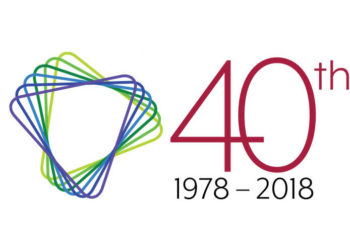The Society for Scholarly Publishing (SSP) recently announced a call for applicants for the position of North American Editor for the journal, Learned Publishing, to begin in February 2023. This is an exciting opportunity for someone to engage with original research in the field of scholarly publishing and apply their expertise to one of the leading journals in this niche area. The North American Editor will work in collaboration with Laura Dormer, who will take up the Editor-in-Chief (EIC) position in November. The appointment of a North American Editor is made by SSP in agreement with the Association of Learned and Professional Society Publishers.
As the chair of SSP’s Learned Publishing North American Editor Search Task Force, I have the honor of working with a team of SSP members to recruit applicants and recommend the finalist for this important position. To raise awareness of this opportunity, I asked Lettie Conrad, the outgoing North American Editor, to share her experiences in the role and the opportunities it presents. Laura Dormer was also kind enough to share a bit of her vision for the journal and her editorial leadership. Finally, I asked Melanie Dolechek, Executive Director, Society for Scholarly Publishing (SSP), to provide a bit of background about SSP’s connection with the journal.
Take a look and consider — maybe you are the next North American Editor of Learned Publishing? Applications are due September 16!

Lettie Conrad: Serving as North American Editor for Learned Publishing (LP) has been a fantastic, enriching experience and I am so grateful to the SSP for this opportunity. The timing was ideal for me, personally and professionally, as I began in this role around the same time I left SAGE and started my journey to become an independent researcher and consultant. My role on the LP board offered me a platform on which to build my network and a wonderful excuse to spend time learning more about a range of issues of interest to our community.
As North American Editor, I was armed with a title (and the business cards) that gave me a good reason to cold-call just about anyone in the business. I had the chance to shape our annual themed issues since 2017, which allowed me to dive deep and learn about topics beyond the remit of my day job. The position also gave me the courage to write for the Scholarly Kitchen and grow my experience with industry analysis.
Working with the LP board has been rewarding and instructive, as the journal is supported by a strong group of incredibly smart people. In particular, Pippa Smart, our outgoing EIC, has been a dear friend and served as my editorial spirit guide, coaching me through these two terms. She was also among my strongest advocates when I chose to move into consulting. I have learned a great deal from watching her in action and will take the question “What would Pippa do?” into my next adventures.
Looking back on when I started 6 years ago, I was a novice at the art and science required to lead a journal. My first-hand experience in this role gave me a deeper understanding of the inner workings of peer review, ethics, and the tricky decisions that often face journal editors. I encourage anyone who cares about scholarly communications and is looking for a new way to engage with our industry to apply for this role. It’s time to welcome the next generation of Learned Publishing leadership!
Laura Dormer: The exciting (although slightly daunting!) thing about taking over the role of Editor-in-Chief of Learned Publishing is that I will be starting from such a strong position thanks to the hard work of Pippa, Lettie, the Associate Editors, and Editorial Board. The journal publishes content in important, topical areas; the recent special issue on students and early career researchers in publishing, and the upcoming issue on implementing DEIA in scholarly publishing, are a testament to this. It is also important to engage with the early-career researcher community, and the fact that Learned Publishing has an Early Career Editor as part of the team is a real strength.
In my role as Editor-in-Chief, my aim will be to maintain and build on the great quality content the journal publishes, and to increase its discoverability and accessibility. By moving the journal to online-only publication, not only is the journal working towards the commitments of the SDG Publishers Compact initiative, but it is also opening up more flexibility in terms of content. I would love to see the inclusion of a wide variety of digital content alongside journal articles, such as video abstracts or infographics. By providing information in a variety of ways, content is more accessible and engaging to a wider audience.
Learned Publishing is a hub for this niche community, made up of researchers from early career onwards, and in my tenure as Editor-in-Chief I hope to continue to provide high-quality, engaging content to serve them.
Melanie Dolechek: Through an affiliate agreement dating back to 2005, SSP members receive free online access to Learned Publishing, which is the principal journal covering the field of scholarly communications and only one of a few dedicated to the scholarly publishing industry. It provides balanced coverage of a wide range of subjects and is a vital source of information to publishers, librarians, funders, editors, and policy makers. The journal offers a variety of content categories, including research articles, case studies, and editorials to help readers maximize new opportunities.
SSP’s affiliation with the journal demonstrates our support for a foundation of peer-reviewed research to inform and help move the industry forward. It’s essential to our mission that SSP members have access to the latest research and we’re happy to partner with ALPSP to ensure that the journal thrives and that our members have an outlet for publishing their own research, observations, or case studies.
As part of our affiliate relationship, SSP appoints a North American Editor to help support the Editor-in-Chief and contributes members to the Learned Publishing Editorial Board as well. We promote the journal and its content through our various communication channels to help expand its readership and direct scholarly communications professionals to the latest research. The North American Editor role has been held by Lettie Conrad, Judy Luther and Diane Scott Lichter, and Janet Fischer. I look forward to working with our next incumbent and supporting their work to build our field.



